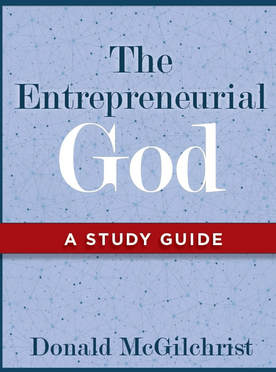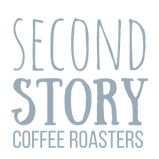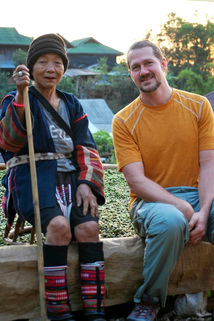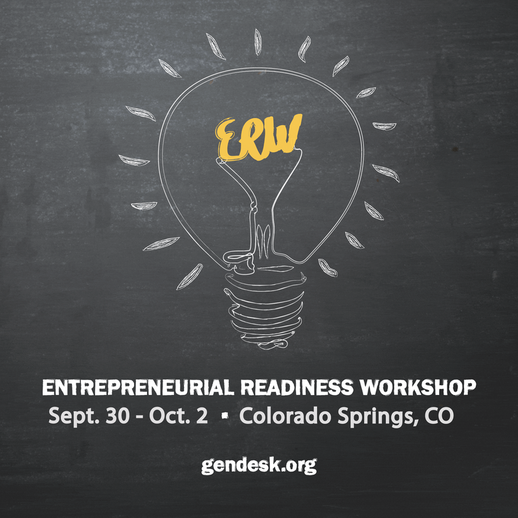 GEN Desk is excited to share the Global Commerce Network's release of its new book titled The Entrepreneurial God, written by Donald McGilchrist. The book can be purchased on Amazon. McGilchrist shows, through a study of the Scriptures, God as the grand innovator who, motivated by love, initiated the first "start-up" – our world. Despite this reality, the philosophical wedge driven between what our culture deems "sacred" and "secular" makes it difficult for business leaders to think about entrepreneurship and innovation through a theological lens. As a result, we miss out on the grandeur of how our enterprises fit within God's overarching purposes for the world. Our perspectives leave us with a narrow view of what it means to be entrepreneurs. The Entrepreneurial God helps us expand our vision and learn from the model of the grand innovator. We see that our enterprises can and should contribute to the shalom, or well-being, of our communities, our economies, and our workers. Donald McGilchirst, a founder of GCN, was born in London, England. He holds an MA from the University of Oxford. He worked for ten years in business in the UK before serving as an international vice president of The Navigators in the US. In this capacity, he focused on cross-cultural studies, communications, and international strategy. In addition to The Entrepreneurial God, he has authored several studies on the cultural and biblical significance of commerce and enterprise, with a focus on our daily work in the world, including The Meaning of Work (2015) and other books in GCN's six-book series titled Scriptural Roots of Commerce. Glenn McMahanGCN Initiatives
0 Comments
The Navigator’s calling is simple yet very profound, To advance the Gospel of Jesus and his Kingdom into the nations through spiritual generations of laborers living and discipling among the lost. The last part has an interesting word: “living”. To some this would mean “where you live”, yet I believe it has bigger implications. I believe this word means “your entire life” or “as you live”. If this is the case then we are to be making disciples where we live, where we play, and even where we work. Every part of life. I began my journey of discovering God in the workplace as I was graduating college. Perfect timing. The commands were quite clear in the Bible: to work heartily as unto the Lord and to do everything for the glory of God (Ephesians 6:5-8 and Colossians 3:22-24). The lost were all around me, so I had no problem believing Jesus when he said the harvest was plentiful. The longer I work (which I’ll admit has not been very long) the more God teaches me about following him in every aspect of my life, even work. When I went to the Entrepreneurial Readiness Workshop (ERW) I didn’t really know what to expect. I didn’t have a business idea ready or even have one brewing. Not a feasible one, anyway. Yet I know now that God used that workshop to teach me more about himself. And I don’t have to start a Missional Enterprise to put what I learned into practice! The triple bottom line is foundational to running a successful Missional Enterprise. Yet this same triple bottom line has the ability to inform everyone’s work from a corporate job to an entrepreneurship.
While I don’t know where God is leading me in regards to starting a Missional Enterprise or joining an existing one yet, I am already able to apply lessons from the ERW to my current workplace. How will you bring glory to God in every aspect of your life? GEN Desk Contributing Author and Nav 20s City LeaderSecond Story Coffee Roasters (SSCR) wants to take care of people. "We want to be a resource to our friends and neighbors, helping them to move closer to who they were made to be. We believe we can do this through coffee, which is the second most traded commodity in the world. Within this large market, we would like to create a business where taking care of people and their stories is as valuable as the quality of our product."  Bryan and Jamie launched SSCR to be a relationally-sourced, primarily single-origin coffee roaster located in Shizuoka, Japan. Currently, they operate on a subscription basis, mailing and delivering coffee to our customers weekly, bi-weekly, or monthly, in addition to occasional pop-up coffee stands in the Shizuoka area. They also roast for wholesale and commercial accounts and hope to open a retail location. Japan is one of the leading consumers of specialty coffee in the world. Bryan and Jamie have a passion for the art of the craft and take great care to bring precision to every part of the process. But beyond the roast and the cup, they brilliantly illuminate the stories of life... from the plantations, consumers, and themselves. They are also deeply interested in the "second story" that is being written every day.  Bryan with a Nepali farmer on one of his many journeys learning about the source of the story. Bryan with a Nepali farmer on one of his many journeys learning about the source of the story. "SSCR strives to buy direct and fairly traded high quality coffees roasted on location with full knowledge of the story behind each bean. We strive to connect with your story, the 'second story,' as we introduce you to the countries and producers of your daily pleasure, even offering the opportunity to travel with us and experience the communities that produce your coffee." Their own story to launch SSCR has been written over many years. Read more about a first leg in their journey to launch, "Our Story to Become Missional Entrepreneurs." A second phase is currently taking place to raise capital needed to secure a new roaster and continue the story. Follow SSCR on Facebook and Instagram, or contact us for more information about Navigator Missional Enterprises and Business as Missions (BAM). – GEN Desk Director
Often there is a chronic divide between the "sacred" and the "secular." But Monday through Saturday matter too... we will feel disconnected and fractured. How is your work related to your worship of God? Is it at all? As missional entrepreneurs, there needs to be a connect. Otherwise the toil of every day tasks will feel like a distraction rather than the context of where we worship God and expect His Kingdom to advance.
Our goal is to propel entrepreneurial teams as integrated and holistic lifelong laborers in business start-ups around the world. The Entrepreneur Readiness Workshop (ERW) is the first step to prepare for ministry as a Navigator missional entrepreneur. Missional enterprise is the Navigator’s Business as Mission (BAM) context to living out our calling.
ERW Details: September 30 – October 2, 2016 Navigator HQ in Colorado Springs, CO More info and Registration at www.gendesk.org/erw This workshop is for you if any of these apply to you...
FAQ:
Where are they now? ERW Alumni are currently starting new ventures around the world in places like Latin America, the Middle East, South Asia, East Asia, and the US. On a busy corner in Guadalajara, Mexico, the scent of fresh bread beckons pedestrians into a rustic bakery. Once inside, however, the pleasing aroma of Christ draws customers to the bakery's mother and daughter owner-operators, Myriam and Adriana Sanchez.
Rogenbrott was founded in 2014 as a missional enterprise to share Christ among the lost. The Sanchez family had a dream of starting a business where they could use their God-given talents as bakers, provide for their economic needs, and share Christ with others. That is what is happening as God is fulfilling their daily prayer of “Lord, let us be a fragrant scent here; may You be who attends to the true needs of our clients and providers.” The bakery sells homemade artisan bread to the community, and its impact is felt daily. Clients come in to purchase bread, and are charmed by the family who naturally shares Christ with them. Clients have learned that they can find a listening ear and someone who will pray for them. One client loves coming into the shop because she admires their peace and joy. When asked how they could always be so joyous, mom and daughter responded that it is Christ in them. The bakery's providers are also being reached with the Gospel. Over the past year, the Sanchez family has developed a relationship with one supplier. Although he comes from a religious family, he didn´t understand the Gospel. The Sanchez family believes in making Jesus known through their daily lives, so it wasn´t long before their provider asked them to pray for his sick relative. They rejoiced together when the relative was restored to health. After, their new friend began to come to them for counsel, and they began studying God´s Word with him. The Sanchezes hope that this is just the first of many who will come to know Jesus as their Savior because of the bread store dedicated to the Lord. The Gospel is being lived out in this bakery, and the pleasing aroma of Christ is fragrant to all. Will you take a moment and pray for this missional business, for the Sanchez family, and for other businesses serving to make Christ known around the world? “For we are the aroma of Christ to God among those who are being saved and among those who are perishing.” (2 Corinthians 2:15 ESV) – GEN Desk Contributing Author “Tom, you’re no longer strange to me.”
What in the world did Ivan, my close friend of two years, mean by that? My wife, our two middle-schoolers, and I had moved into a country that every national who had the chance was fleeing. Food was scarce. Utilities were sporadic. Unemployment was skyrocketing. Corruption was rampant. New criminal gangs were terrorizing the populace as they were fighting each other and carving out their territories. Our move from the suburbs of America to this collapsing country didn’t seem odd to me. It seemed more like an adventure to make a difference in the world by distributing humanitarian aid and leading bible studies with young adults who had never seen a Bible. I met Ivan and his wife on our first day in his country. They were both college graduates and were unemployed. I hired them as our language tutors, our interpreters, and our first employees. We shared life with them for hours on end for 5-6 days a week for two years. The bible studies seemed to be going well. Ivan was translating the materials from English into his native language. Using his artistic ability he also illustrated them with pen and ink drawings. Ivan was a new believer himself so our times in the Word were rich and special for him. I thought I was really connecting with Ivan, so what was that comment about me, “no longer being strange?” After our first 18 months in the country, I changed my focus from humanitarian aid to missional enterprise (BAM). As the enterprise grew we were able to employ more and more people. Job creation took the place of humanitarian handouts. Gainful employment restored dignity and removed the stigma of inferiority. The needs of our enterprise began to create auxiliary enterprises that provided employment for more people. This ripple effect of wealth creation made more sense to Ivan than our previous attempts of propping people up with bailouts. So why did Ivan think I was strange? When I asked him he gave me two reasons:
He also gave me two reasons why I was no longer strange to him:
It makes me wonder how many others have thought of me as strange when I thought I was just trying to help. - Missional Entrepreneur, GEN Desk Contributing Writer  “One of the great challenges for everyone is finding a place in the world – seeing a lot, hearing a lot, reading a lot, and then deciding where we will be and what we will do. Knowing what we know, what will we do?” - Steven Garber, Visions of Vocation “Knowing what we know, what will you do?” Garber’s question parallels the parable of the Good Samaritan. When the man was left half dead between Jerusalem and Jericho, the priest, Levite, and Samaritan all saw the depleted man. Yet, the priest and Levite chose not to engage in the brokenness. Instead, they continued on their journeys. When the Samaritan saw the man, he knew the man was hurt and in desperate need of help. With this knowledge, he chose to help the man. He brought the man to the inn and took care of him. In Visions of Vocation, Steven Garber stresses the importance of engaging in the broken world around us, similar to how the Good Samaritan engaged with the hurt man. As Christians, he says “it is clear that the way we live shows what we believe.” Through missional enterprise, we have a chance to live in a way that will demonstrate what we believe. As we see problems around the world, we get to engage and create positive social impact, financial sustainability, and spiritual transformation through business. Jesus’ Kingdom advances. As Garber exemplifies in his book, whether you have the desire to start a clinic in an area with inadequate healthcare, an agriculture business that treats employees fairly and grows crops honestly, or a climbing gym to build trust in a society where it is lacking, you get to create positive change that brings glory to God. Just like the Good Samaritan, it is important to see the wounds of the world and to do something about it. Missional enterprise is one context that allows the Kingdom to salve the pain of the wounds. What are some specific ways your business could see the world as it is and step into the brokenness to make an impact? What are ways you could be the Good Samaritan to the hurting in your community or around the world? – GEN Desk Intern
Why does God’s presence in the workplace matter? The Great Commission challenges all of us, “Go and make disciples of all nations, baptizing them in the name of the Father and of the Son and of the Holy Spirit, and teaching them to obey everything I have commanded you” (Matthew 28:19-20, NIV). The average adult is awake 16 hours a day: one hour to prepare for work, 30 minutes each driving to and from work, eight hours at work. That’s already 10 out of 16 hours. Let’s contrast that with the time we invest at church. For some people, it’s just an hour a week. The point? The majority of our life is invested in preparation for work and in doing it. That’s why God’s presence in the workplace matters. God knew the struggle we were going to face in the workplace, so throughout Scripture He gave us clear instruction, warning and encouragement about our work. Instruction: “Whatever you do, work at it with all your heart, as working for the Lord, not for men, since you know that you will receive an inheritance from the Lord as a reward. It is the Lord Christ you are serving” (Colossians 3:23-24, NIV). Warning: “No one can serve two masters. Either he will hate the one and love the other, or he will be devoted to the one and despise the other. You cannot serve both God and Money” (Matthew 6:24, NIV). Encouragement: “Do not worry about your life, what you will eat or drink; or about your body, what you will wear. Is not life more important than food, and the body more important than clothes?” (Matthew 6:25, NIV). The workplace offers great opportunities to encourage those who know Christ and to witness to those who don’t. I have heard many arguments about why God does not belong in the workplace. There is the legal argument. The “it might offend someone” argument. The “what gives you the right?” argument. I have even heard the “it might scare off customers or employees” argument. But Jesus said, “I tell you, whoever acknowledges me before men, the Son of Man will also acknowledge him before the angels of God. But he who disowns me before men will be disowned before the angels of God.” (Luke 12:8-9, NIV). If I claim Christ, if I accept His offer of grace, I cannot leave Him in the car and spend the bulk of the day pretending I don’t know Him. Think of how Peter denied Jesus–is that any different from our daily failure to claim Him in the workplace? The marketplace matters because God offered us His Son, the greatest Gift in history. And our acceptance of that Gift came with instructions: Every one of us is called to participate in the Great Commission. Every day in the workplace we have the opportunity to share that Gift with others. Be bold. Live your Christian faith every day. If we do that, we will affect the lives of many in the great harvest field that exists in the workplace. God's Presence in the Workplace
Originally published by Pat Flood, September 24, 2004, at www.billygraham.org. Recent notes from Jerry White's presentation on, "A Minimalists Guide to Life at Work."
The bottom line for those who like to know the conclusion first! Our work needs: Calling, Excellence, Competence, Faithfulness (work hard), and Attitude. The Theology of Work: From the beginning: "The LORD God took the man and put him in the Garden of Eden to work it and take care of it.” Genesis 2:15 (NIV) Commands and Limits: "Six days you shall labor, but on the seventh day you shall rest; even during the plowing season and harvest, you must rest.” Exodus 34:21 (NIV) New Testament View: "Make it your ambition to lead a quite life, to mind your own business and to work with your hands, just as we told you, so that your daily life may win the respect of outsiders and so that you will not be dependent on anybody.” 1 Thessalonians 4:11-12 (NIV) No work is secular: "Whatever you do, work at it with all your heart, as working for the Lord, not for men.” Colossians 3:23 (NIV) Some specifics: "For you yourselves know how you ought to follow our example. We were not idle when we were with you, nor did we eat anyone’s food without paying for it. On the contrary, we worked day and night, laboring and toiling so that we would not be a burden to any of you. We did this, not because we do not have the right to such help, but in order to make ourselves a model for you to follow. For even when we were with you, we gave you this rule: ‘If a man will not work, he shall not eat.’ We hear that some among you are idle. They are not busy, they are busybodies. Such people we command and urge in the Lord Jesus Christ to settle down and earn the bread they eat.” 2 Thessalonians 3:7-12 (NIV) Key Concepts:
Pinpricks for Our Thinking:
Dig in for yourself! What does God reveal to you about himself, you, and work? – Gen Desk Director |
Categories
All
Archives
March 2020
|





 RSS Feed
RSS Feed
